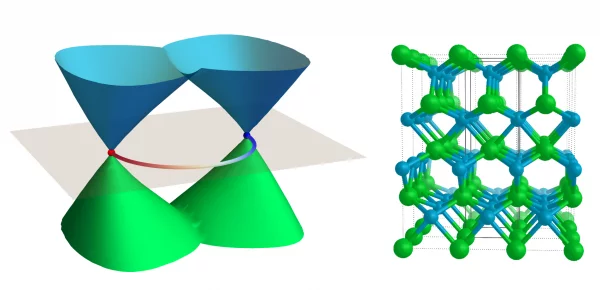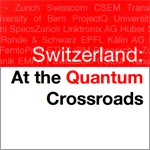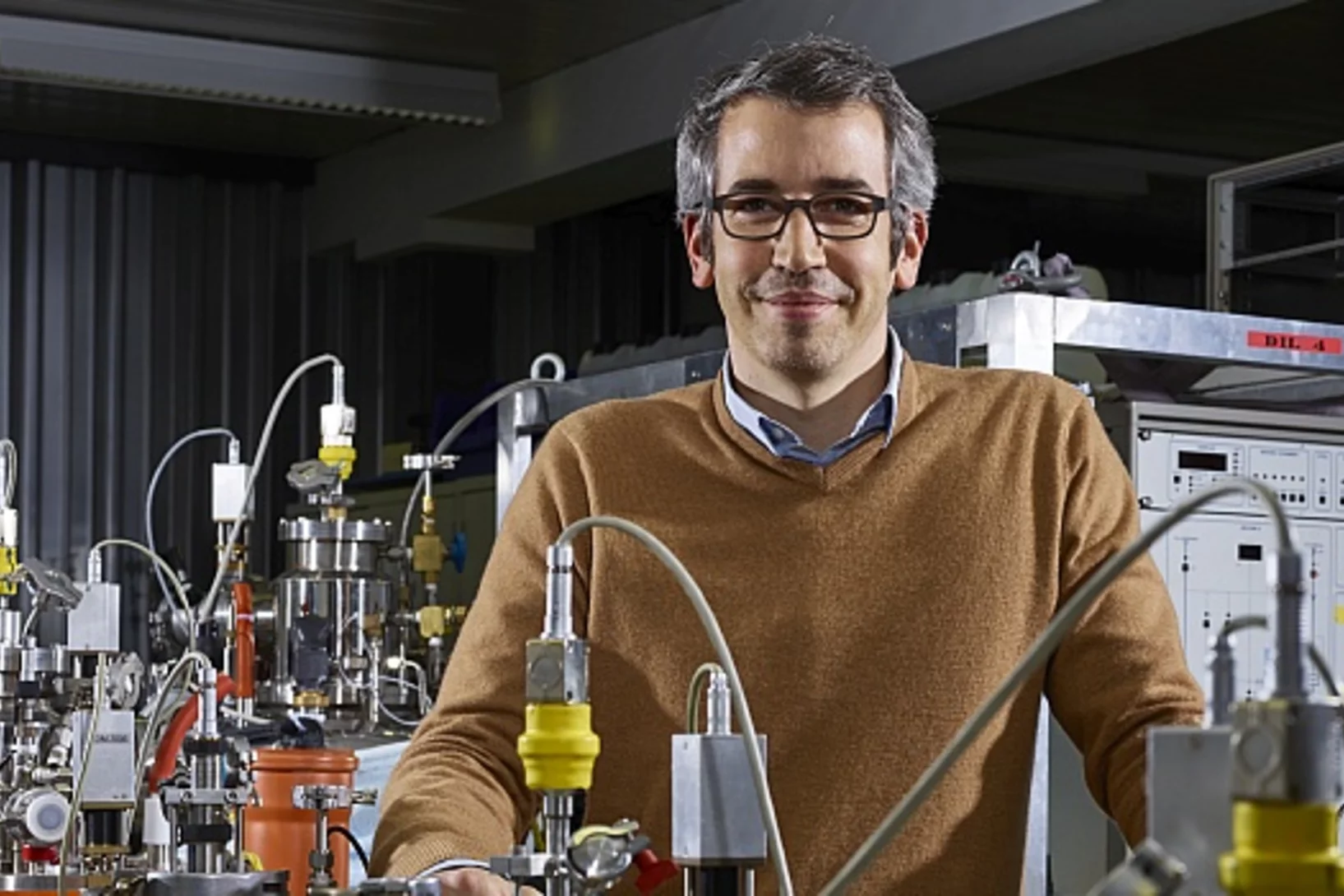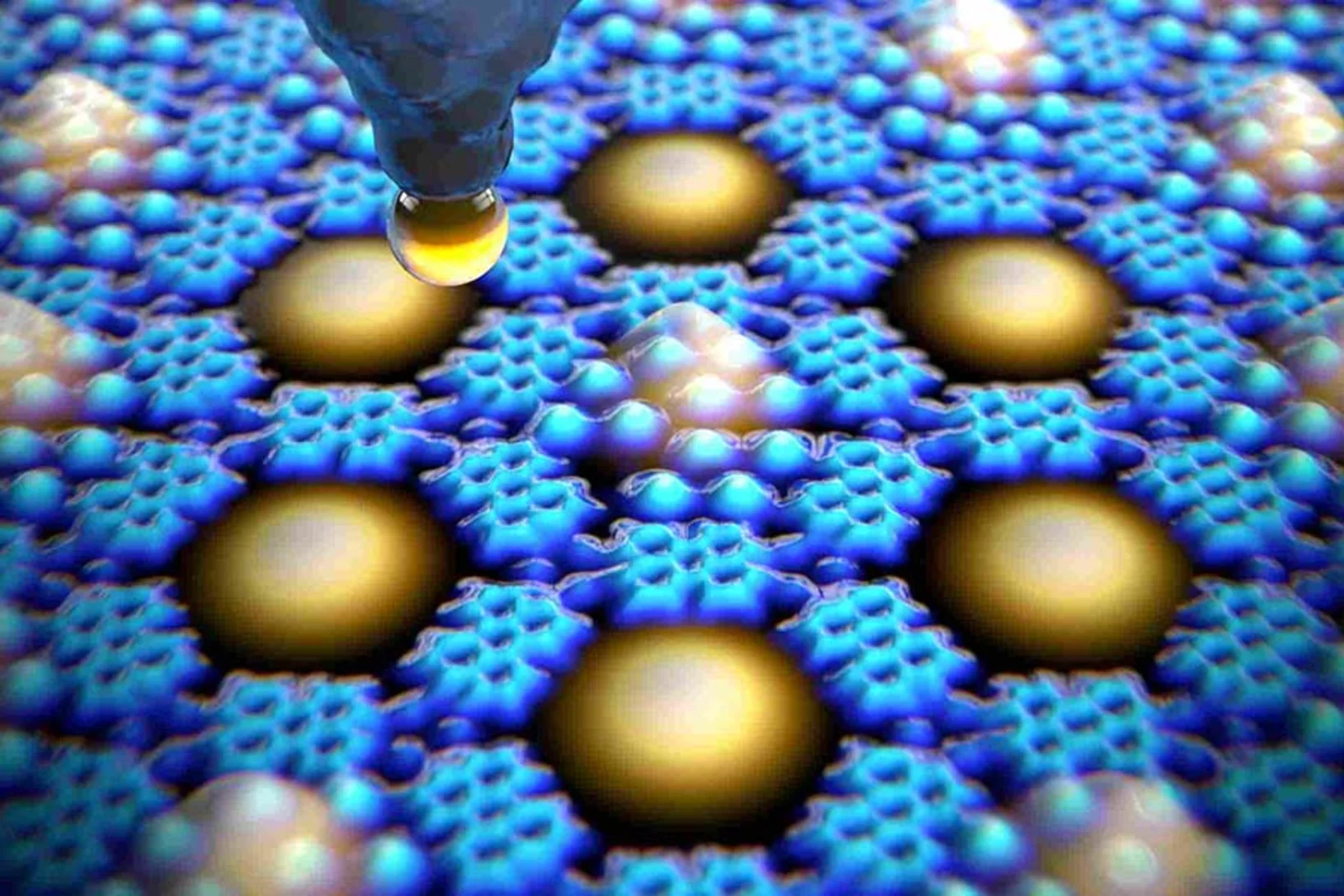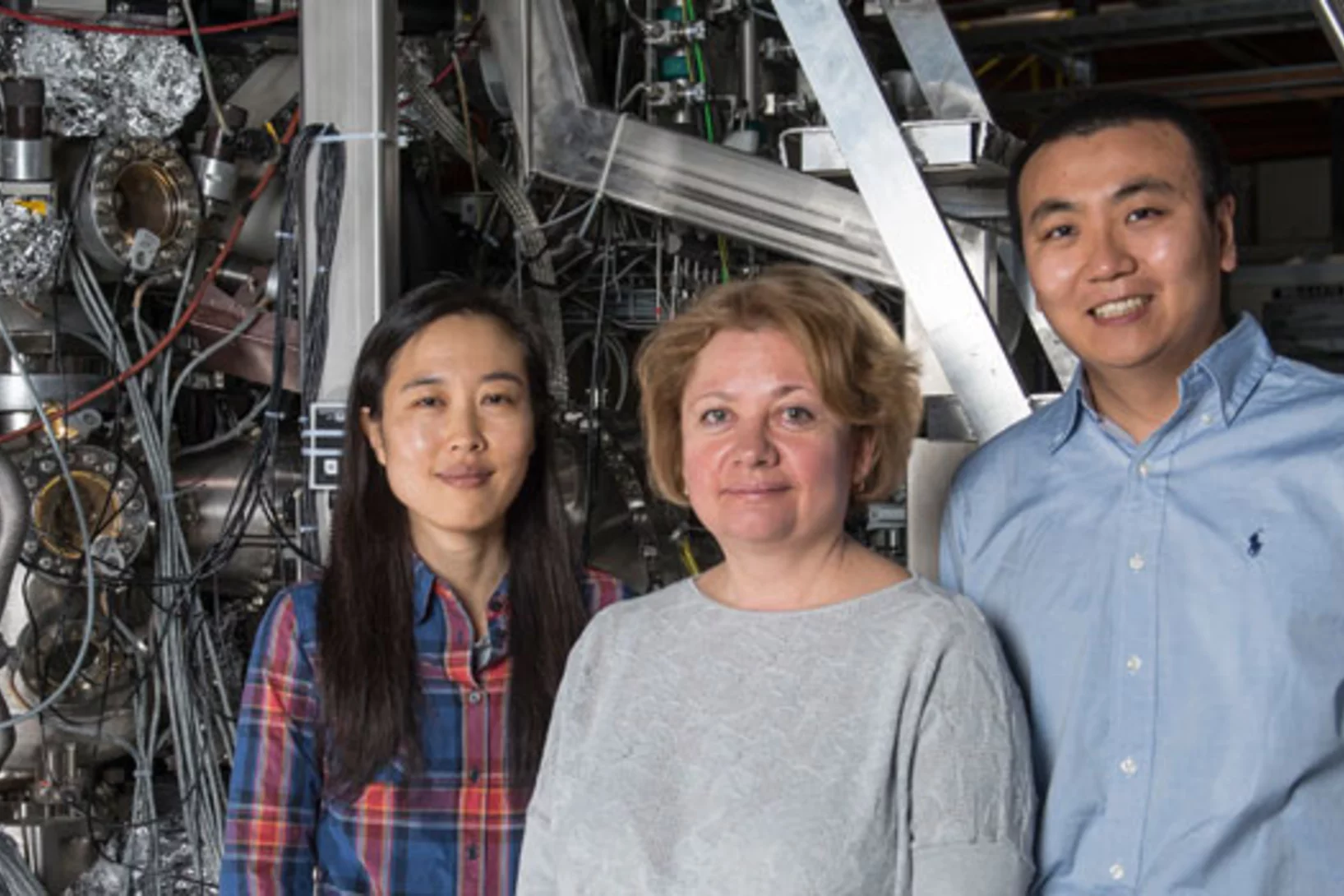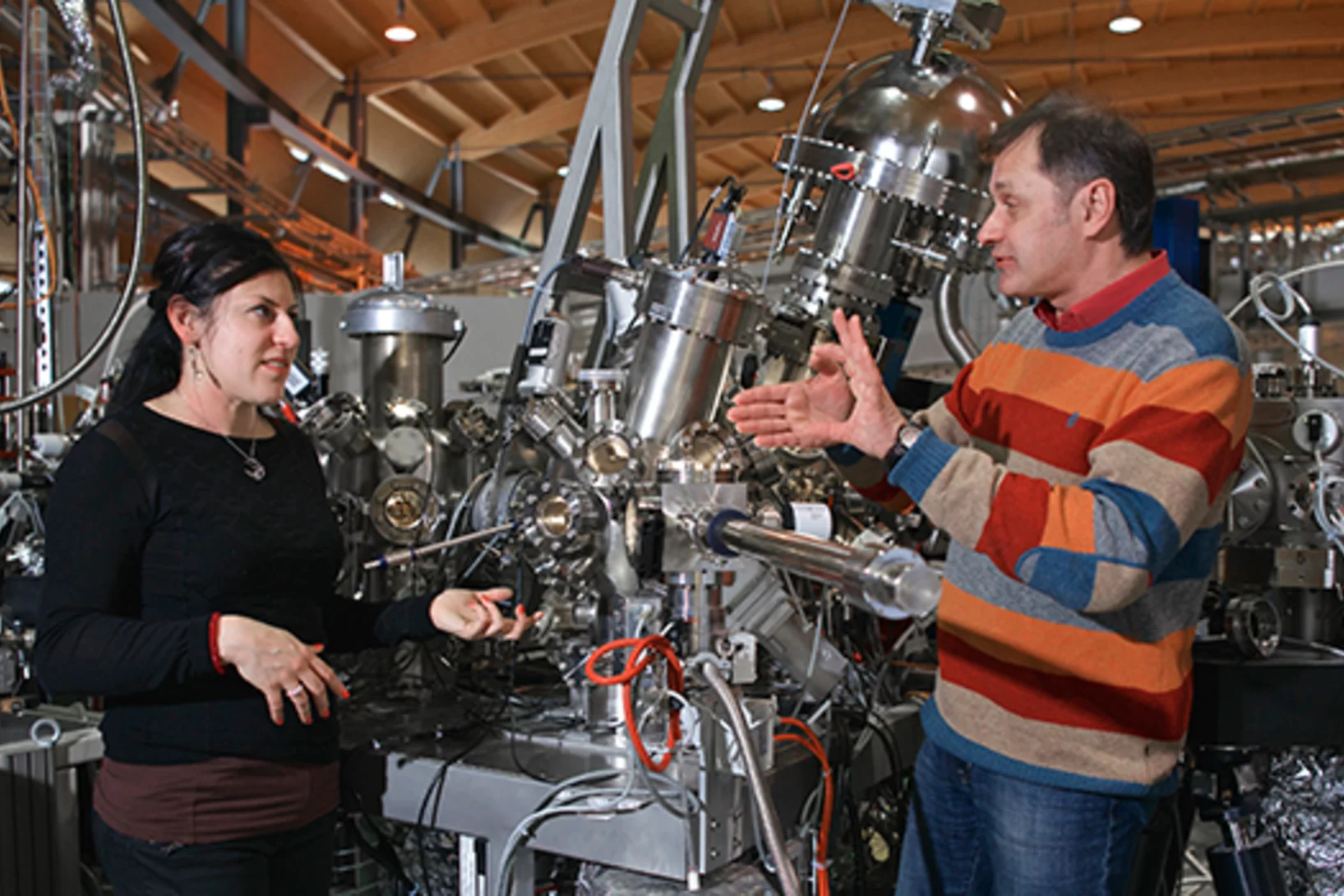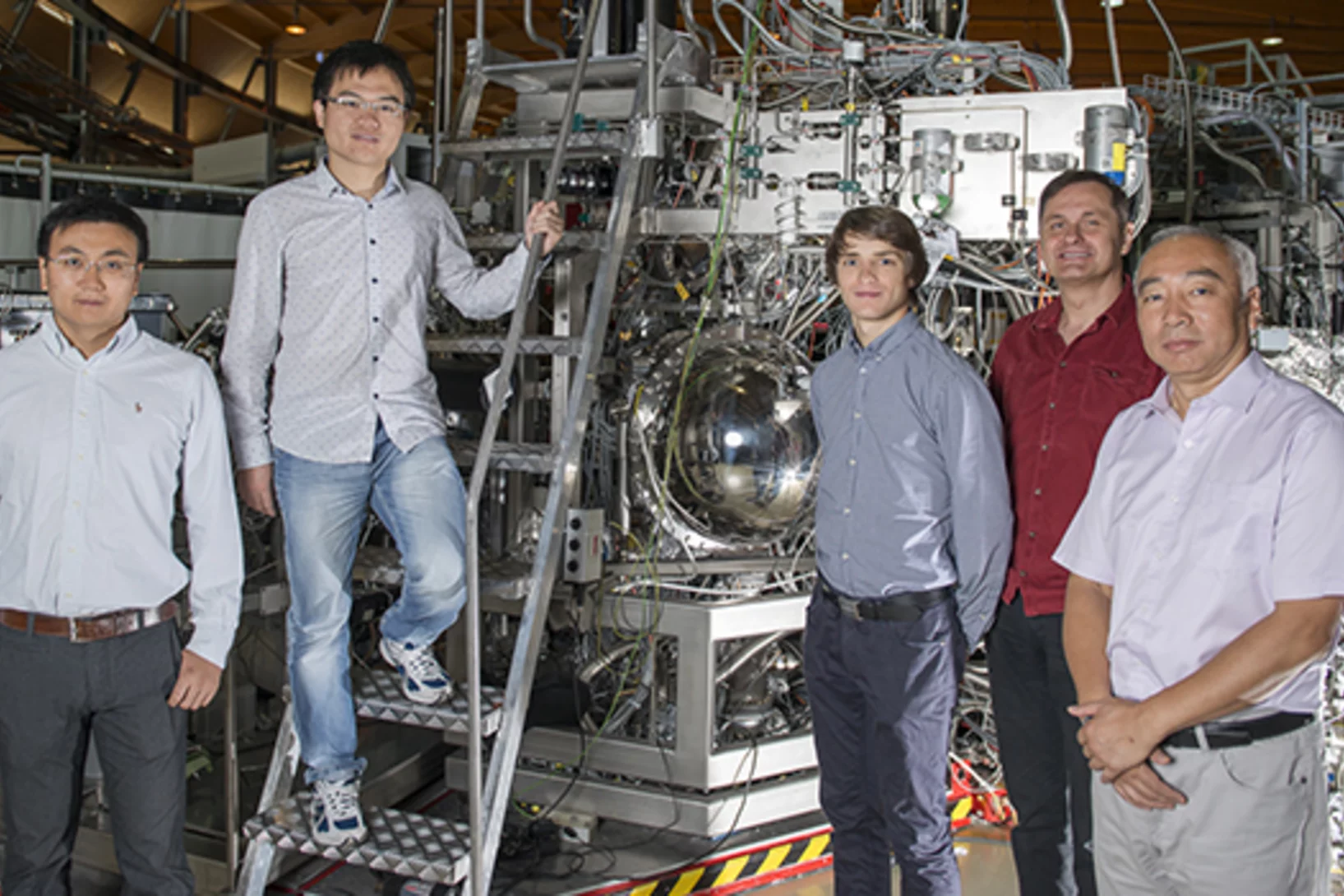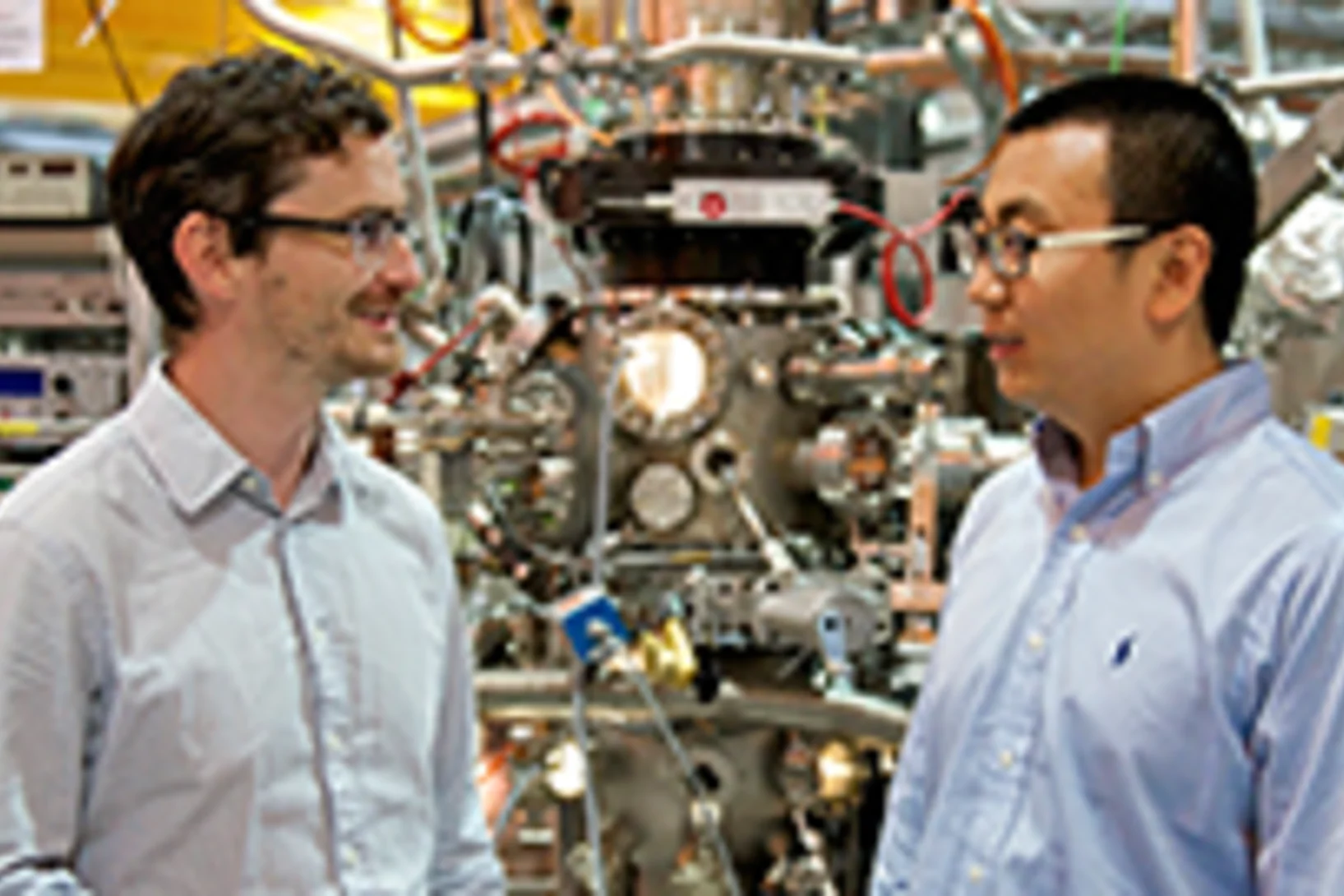A breakthrough on Weyl semimetals
In their recent paper, Distinct Evolutions of Weyl fermion quasiparticles and Fermi arcs with bulk band topology in Weyl semimetals, two MARVEL groups — led by Prof. Ming Shi and Dr Nan Xu at PSI for the experimental part, and with Prof. Oleg Yazyev and Dr Gabriel Autès at EPFL for the theoretical side — joined forces to shed light (and soft X-rays) on the relationship between the bulk band topology in Weyl semimetals and two measurable signatures of Weyl fermion quasiparticles: magneto-transport effects in the bulk, and Fermi arcs on the surface.
3-D X-ray imaging makes the finest details of a computer chip visible
Researchers at the PSI have made detailed 3-D X-ray images of a commercially available computer chip. In their experiment, they examined a small piece that they had cut out of the chip beforehand. This sample remained undamaged throughout the measurement. It is a major challenge for manufacturers to determine if, in the end, the structure of their chips conforms to the specifications. Thus these results represent one important application of an X-ray tomography method that the PSI researchers have been developing for several years.
Switzerland at the Quantum Crossroads document endorsed by QTC@PSI members
“Switzerland at the Quantum Crossroads” outlines the current quantum science and technology landscape in Switzerland, explains the promises of this technology and outlines the required steps for Switzerland to leverage its leadership in this space.
SwissFEL inauguration
Today, on 5 December 2016, the Paul Scherrer Institute PSI held an inauguration ceremony for its new large-scale research facility SwissFEL, with Johann N. Schneider-Ammann, President of the Swiss Confederation, in attendance.
ERC funding of €2.4 million for research on fundamental interactions in magnets
Christian Rüegg has been awarded a prestigious Consolidator Grant from the European Research Council (ERC). With this funding he will continue to investigate how the smallest magnetic building blocks of matter interact.
Controlling Quantum States Atom by Atom
A method to precisely alter the quantum mechanical states of electrons within an array of quantum boxes has been developped by an international consortium also including PSI. The method can be used to investigate the interactions between various types of atoms and electrons, which is essential for future quantum technologies.
New particle could form the basis of energy-saving electronics
The Weyl fermion, just discovered in the past year, moves through materials practically without resistance. Now researchers are showing how it could be put to use in electronic components.
Slowed down current could point the way to energy-saving computers
Computers and other electronic devices account for a substantial portion of worldwide energy use. With today’s technologies, it is not possible to reduce this energy consumption significantly any further; chips in the energy-saving electronics of the future will hence have to be made from novel materials. Researchers at the Paul Scherrer Institute PSI have now found important clues in the search for such materials.
Electron’s cousin discovered after eighty-six-year search
In a series of experiments at the Swiss Light Source SLS, physicists from the Paul Scherrer Institute PSI have discovered a particle, the existence of which was predicted eighty-six years ago. It is a member of the particle family that also includes the electron, the carrier of electrical currents. The particle now discovered is massless and can exist only within a special class of materials known as Weyl semi-metals.
Insulator makes electrons move in an ordered way
Researchers at the PSI, the EPFL and the Chinese Academy of Science, have proven that the material SmB6 shows all the properties of a so called topological insulator à a material with electric currents flowing along its surface with all of them being polarized. Here, the property is very robust, i.e. the only current that can flow is spin polarized and is not easily destroyed by small irregularities in the structure or composition of the material. Spin polarized currents are necessary for spintronics, electronics using the electrons’ spin.
